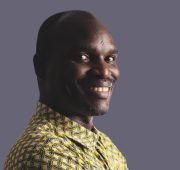Back Story: The Accessibility Guidelines Checklist
 by Lee Martindale, SFWA Director-at-Large
by Lee Martindale, SFWA Director-at-Large
It’s no stretch of the imagination to say that I take accessibility issues personally. I’ve been running into them since I became a paraplegic in 1991 and dealing with them in SF convention settings since my first guest writer gig in 1994.
Over the course of more than three hundred conventions of all sizes, there have been instances where a convention got it right. Lifts or code-compliant ramps to the stage or between levels of terraced banquet rooms, last-minute reassignment of a panel from a room with a dais to one where the panel table was at floor level. But more often than not, what it takes is finding workarounds.
There have been times when a hotel’s layout made it necessary to go “back of house” in order to get into panel rooms, a circumstance that is frequently educational and almost always awkward.
There have been a few occasions when my fellow panelists have thoughtfully left the dais and joined me at floor level, but most of the time the size of the room and/or the panel make that difficult. So I have participated on panels, moderated panels, and performed as conventions’ ToastMistress at a physical and perceptual disadvantage. At what I think was my first SFWA General Business Meeting as a member of the Board of Directors, I again ended up sitting below the dais, quite literally at my fellow Board Members’ feet. I’ll spare you the workarounds that were risky to life, limb, wheelchair, and dignity.
It’s hard not to feel disappointed, frustrated, and – yes – angry when things like that happen. And it really doesn’t mitigate those feelings that, more often than not, accessibility issues are the result of things just not being recognized as problems. No one connected with the convention noticing those two steps up to the con suite, the four steps down to the hotel restaurant, or that access to the convention space does not include an elevator. It honestly slips their minds that some of their guests and presenters, not to mention a segment of their attendees, need some accommodations in order to fully participate.
When I was elected to SFWA’s Board of Directors in 2010, I brought with me the desire to see the organization move toward greater accessibility at SFWA-sponsored events, particularly the Nebula Awards weekend. That desire stemmed from my own experiences at SF conventions, particularly the Nebula Weekends I’d attended. But it was largely prompted by how ashamed I was of SFWA that, at the Nebula Weekend at which she was named Grand Master, the only way Anne McCaffrey could get to spaces in which she was being celebrated involved going through a very busy kitchen and up a service elevator.
I’m proud to have been involved in the work that resulted in SFWA’s Accessibility Guidelines Checklist and a member of the Board of Directors that approved it, in January 2014, for use at SFWA-sponsored events. And I’m delighted that SFWA is sharing it at http://www.sfwa.org/accessibility-checklist-for-sfwa-spaces/
I believe it can serve as a useful tool and resource for conventions interested in being more welcoming to attendees and participants with physical challenges. That’s a win-win situation. And on that, I speak from experience.


